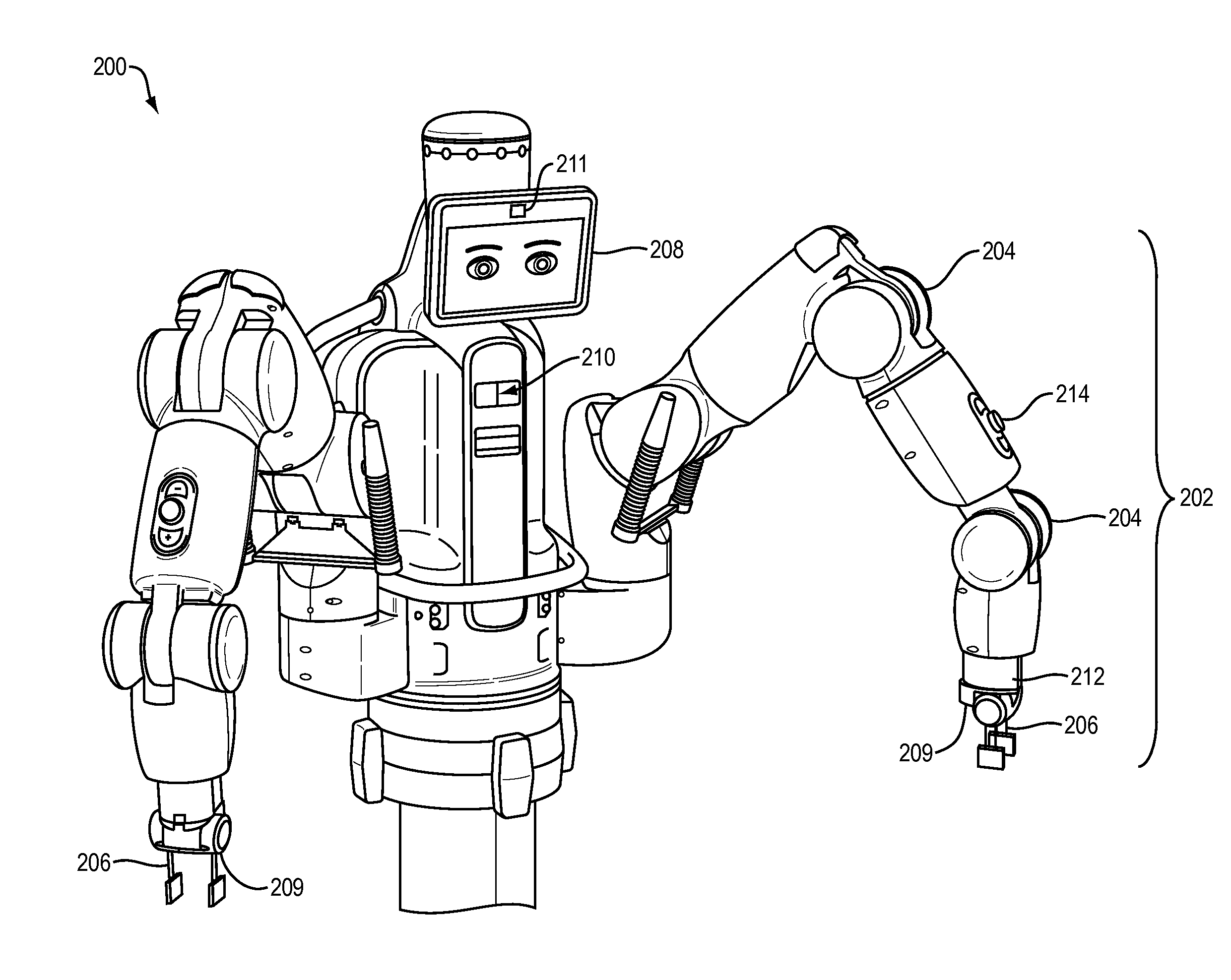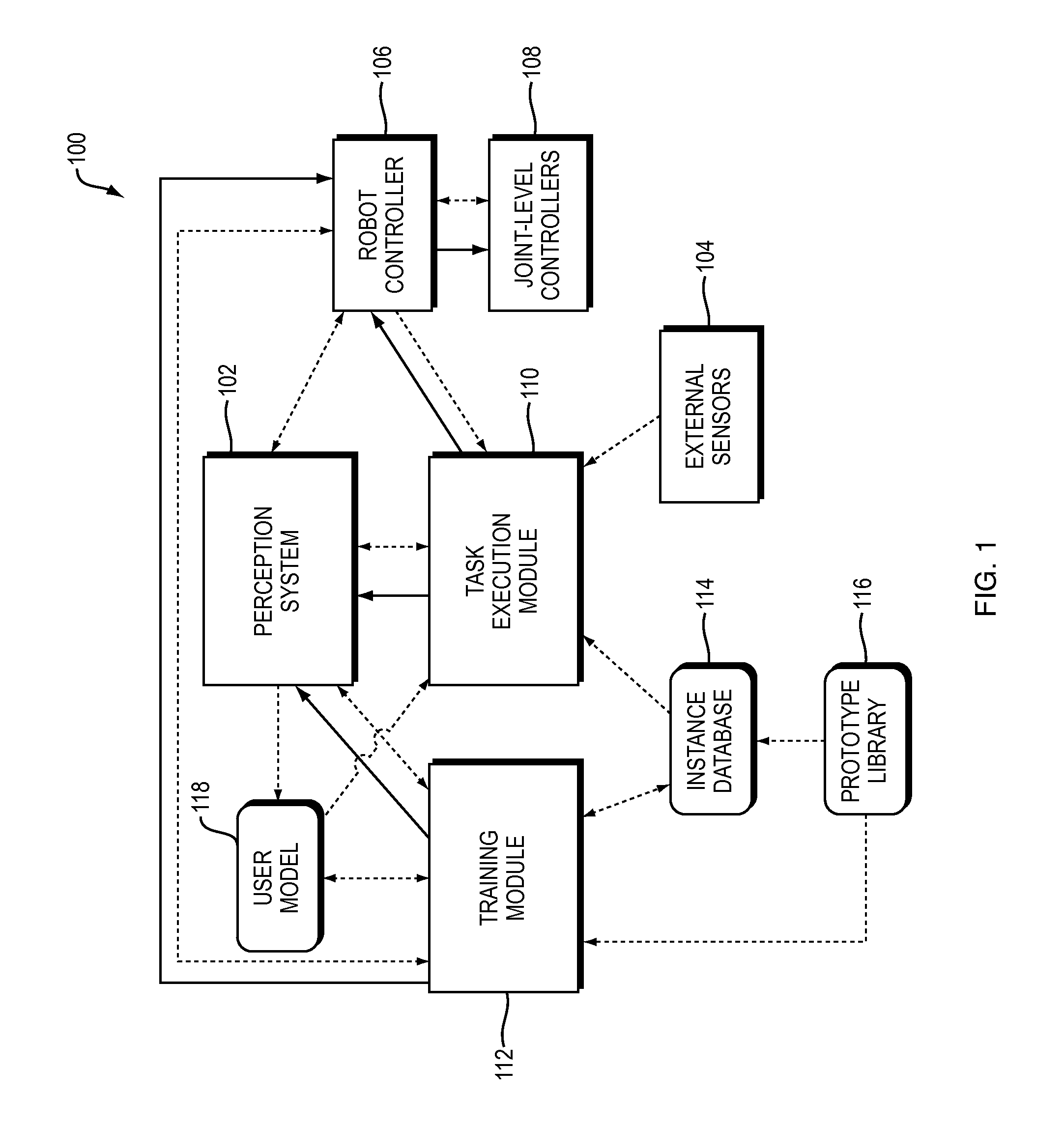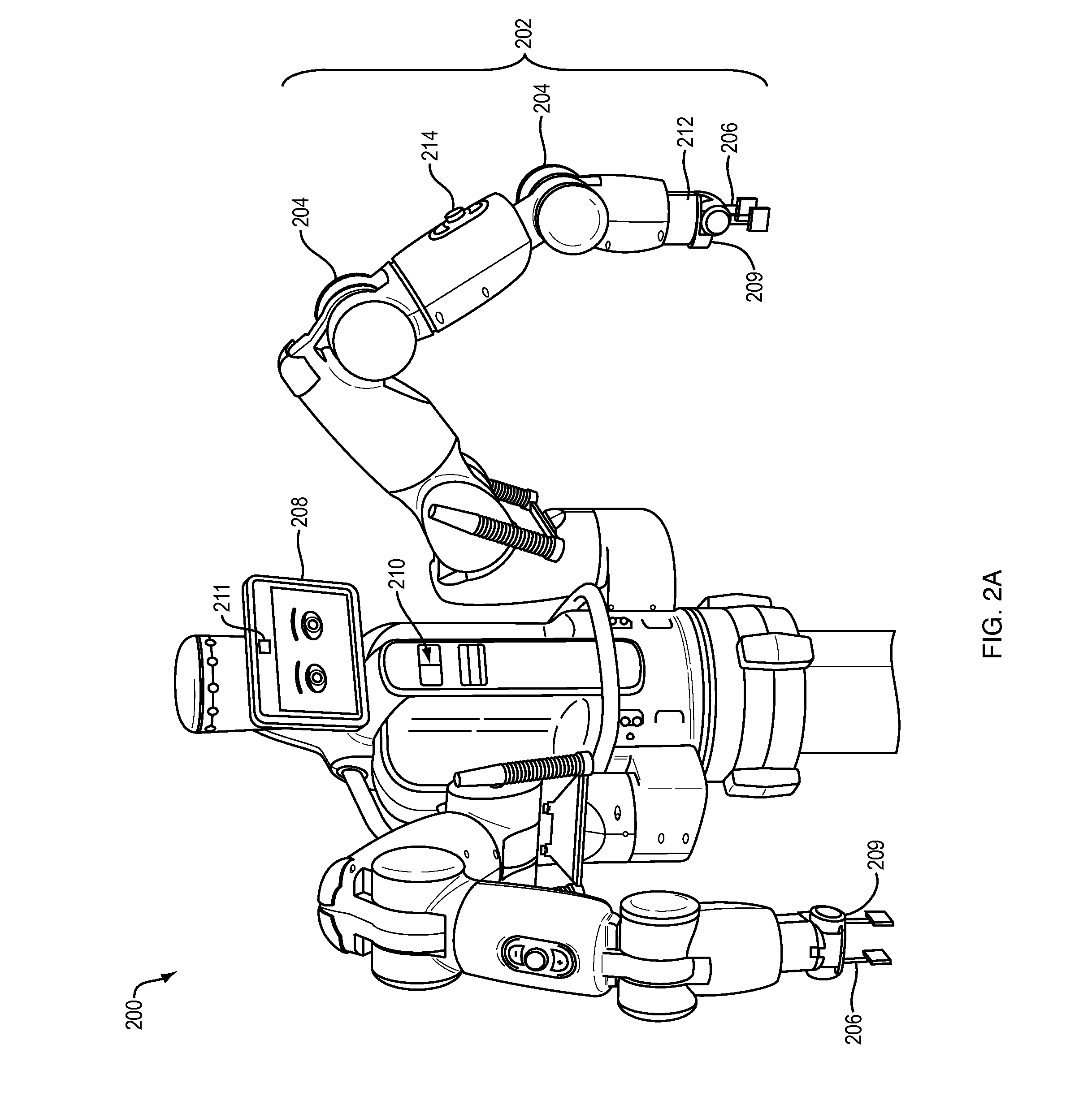Training and operating industrial robots
a robot and industrial technology, applied in the field of robot operation and training, can solve the problems of robots only being able to pack objects, reference points to wrong places in the world, and failure to achieve tasks,
- Summary
- Abstract
- Description
- Claims
- Application Information
AI Technical Summary
Benefits of technology
Problems solved by technology
Method used
Image
Examples
Embodiment Construction
1. System Overview
[0037]FIG. 1 illustrates the architecture of an exemplary control system 100 for training and operating robots in accordance with various embodiments hereof. The system includes several functional components (depicted as boxes with sharp corners), implemented in hardware and / or software, as well as a number of data structures (depicted as boxes with rounded corners). The functional components generally operate in parallel and communicate with each other and with the data structures (although various functional components that are implemented in software, while depicted as self-operative modules, are ultimately executed by a processor). FIG. 1 indicates communication paths with arrows. Dashed arrows indicate information flowing in the direction of the arrow; double-headed dashed arrows indicate bi-directional information flow; and solid arrows indicate that control commands are passed in the direction of the arrow.
[0038]To enable the robot to act upon its environmen...
PUM
 Login to View More
Login to View More Abstract
Description
Claims
Application Information
 Login to View More
Login to View More - R&D
- Intellectual Property
- Life Sciences
- Materials
- Tech Scout
- Unparalleled Data Quality
- Higher Quality Content
- 60% Fewer Hallucinations
Browse by: Latest US Patents, China's latest patents, Technical Efficacy Thesaurus, Application Domain, Technology Topic, Popular Technical Reports.
© 2025 PatSnap. All rights reserved.Legal|Privacy policy|Modern Slavery Act Transparency Statement|Sitemap|About US| Contact US: help@patsnap.com



